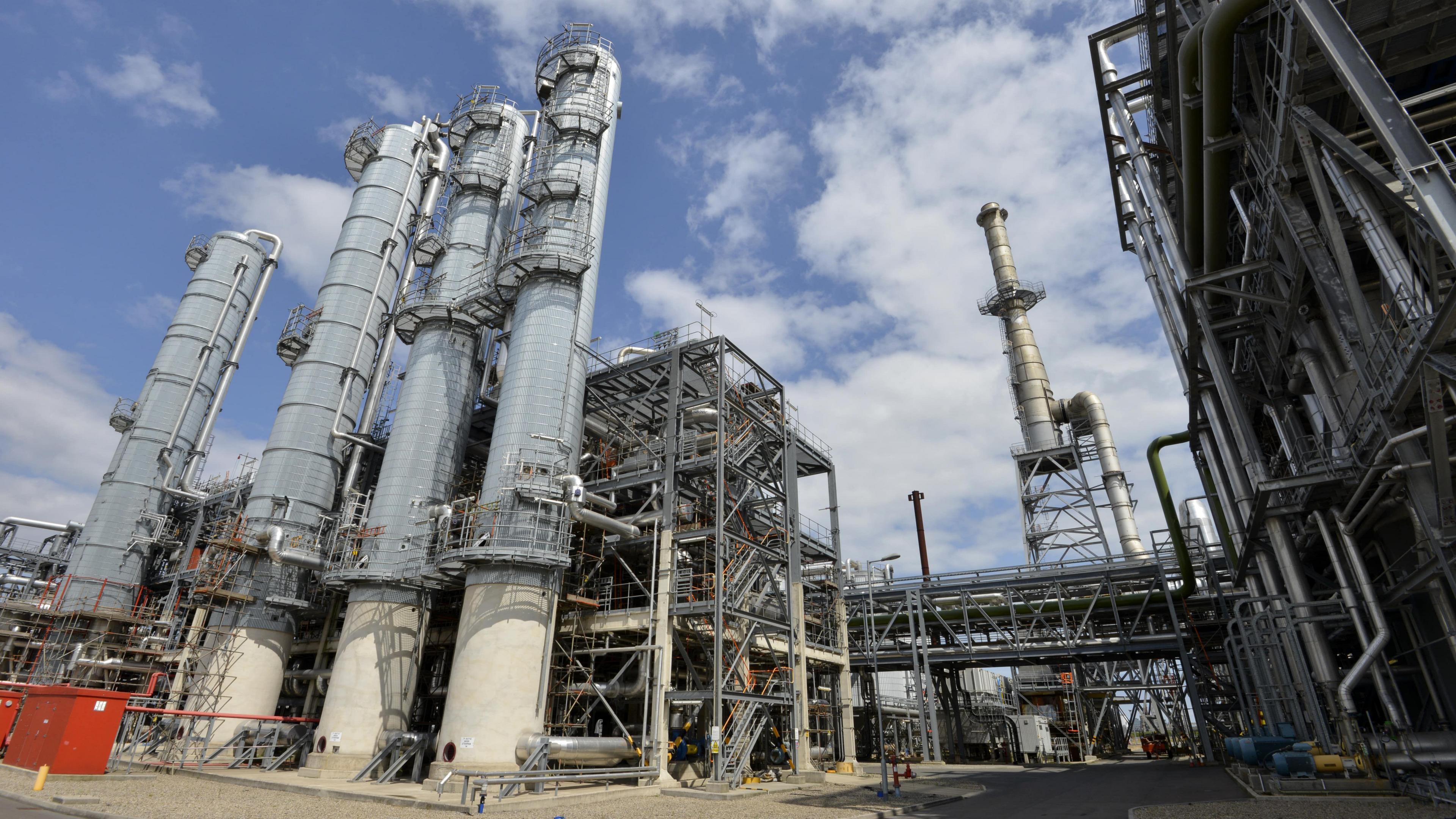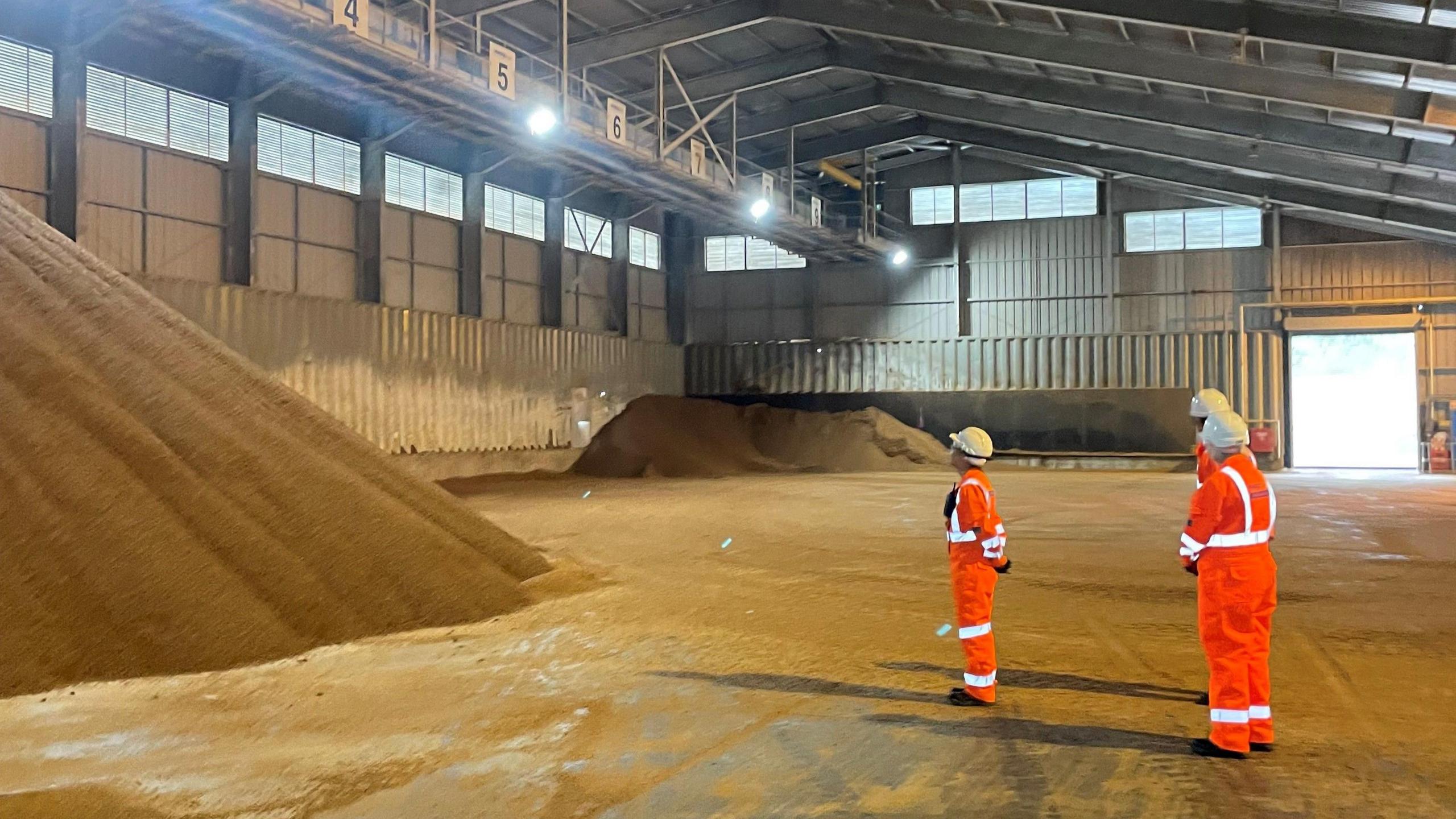Talks continue over bioethanol plant's future

Ensus produces bioethanol in Redcar
- Published
Discussions over the future of a bioethanol plant are still ongoing, the government has said.
German firm Ensus, which runs the Redcar plant, has said that the UK-US tarriff deal, "fundamentally undermined its business position", as it removed a 19% tariff on US ethanol imports.
In August, the UK's only other bioethanol plant, ceased production following the US trade deal.
Ensus said it was still negotiating with the Department for Business and Trade (DBT) over the plant's future and that it would likely "take time" to come up with a deal.
In August the Vivergo Fuels Site at Saltend, near Hull, stopped production and began laying off its 160 employees.
At the time, the government said it had decided a rescue would not provide value for taxpayers or solve the industry's long-term problems.
'Resilient CO2 supply'
Both the Vivergo plant and Ensus's Redcar plant produce bioethanol which is blended with petrol to produce more environmentally friendly fuels, such as E10 petrol in the UK.
But unlike the Vivergo plant, Ensus's site also produces commercial CO2 as part of this process.
An Ensus spokesperson said it was this commercial CO2, which is widely used in industry, food production and healthcare, that was key to discussions with DBT over the plant's future.
They said the firm had met the business minister in August who said the CO2 it produced was of "critical national importance".
It is understood the UK imports the majority of its CO2 supply from overseas.
DBT said: "We continue to engage with Ensus and the rest of the sector to ensure a resilient CO2 supply and will assess how any shifts in demand may affect industry."
Follow BBC Tees on X,, external Facebook, external, Nextdoor and Instagram, external.
Get in touch
Do you have a story suggestion for BBC Tees?
Related topics
More stories across the BBC
- Published18 August
